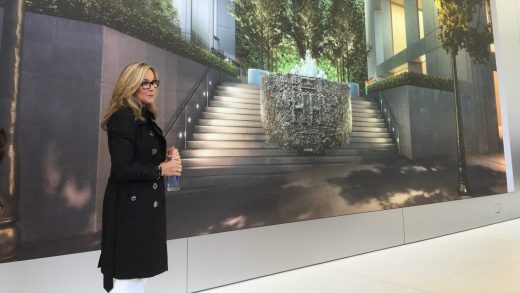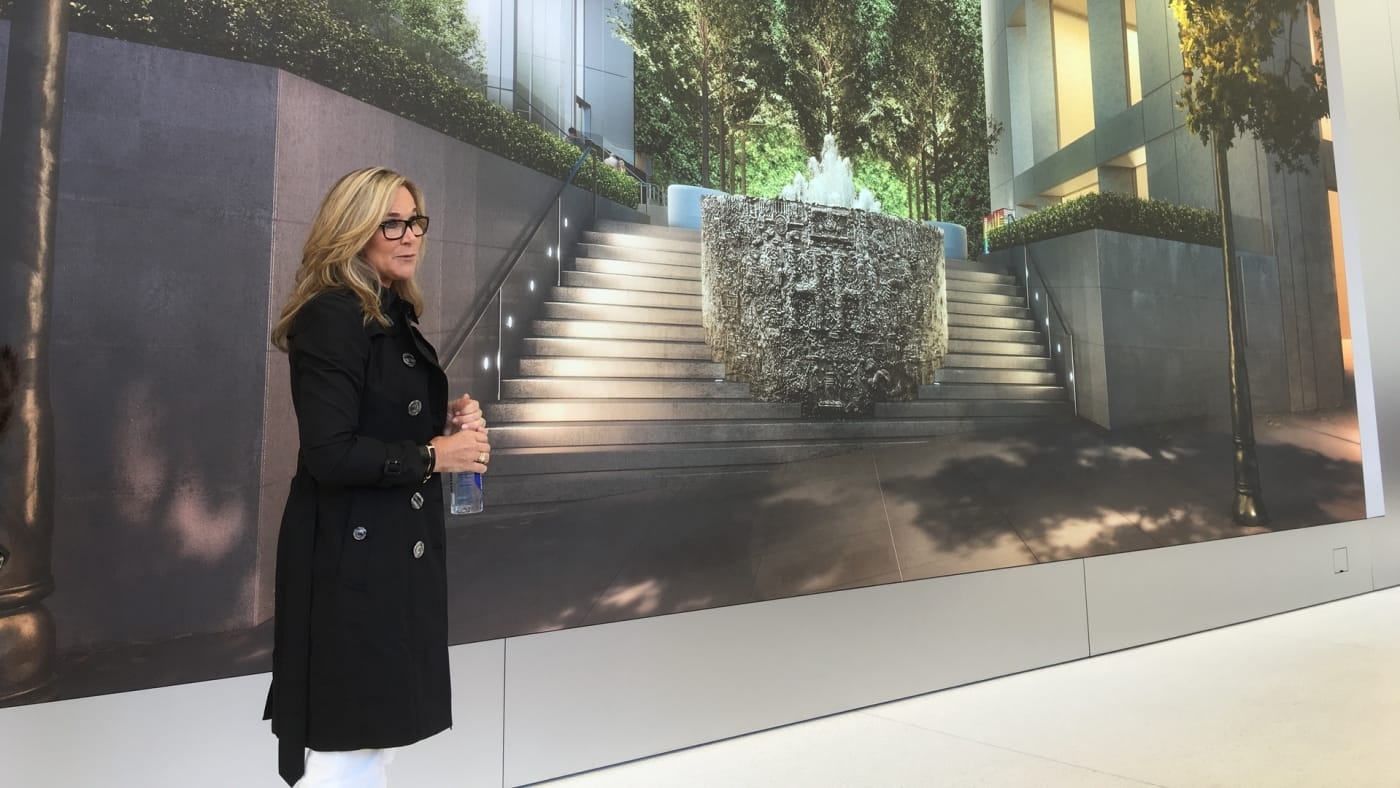Kids Expect Apple To Meld Creativity And Education, Says Its Retail chief
The most obviously unusual thing about the education-themed extravaganza that Apple held on Tuesday was its venue: Lane Tech College Prep, a gorgeous 1930s high school building in Chicago. But another unique aspect of this product launch was the fact that it segued into an open-to-the-public evening program at Apple’s Michigan Avenue store, with a presentation by an award-winning teacher on using Apple’s Clips app in schools and a performance by rapper Towkio, a Lane Tech graduate.
The store activities were a reminder that Apple’s 501 retail outposts are the closest thing the company has to its own classrooms. At the Chicago store, I chatted with Angela Ahrendts, Apple’s senior VP of retail, and two of her colleagues, about the day’s news and the stores’ part in it. Ahrendts told me that Steve Jobs said that the mission of retail was to enrich lives rather than merely move product. But another, she says, is education: “Connecting people and humanizing technology, maybe our job is to inspire.”
For the past 10 months, Apple has been piloting “Teacher Tuesdays,” a series of sessions at Apple Stores that brings in educators—such as those honored by the company’s 24-year-old Apple Distinguished Educator program—to share advice on using Apple device, apps, and services. Now it’s extending the program to all its stores globally and isn’t just restricting it to Tuesdays. The desire to host educational events also influenced the new retail format the company has been rolling out, which opens up far more space for gatherings: “We had to redesign the store,” Ahrendts says. (That configuration makes her talk of inspiration and education feel less corny than if the establishments she oversees devoted every available inch to products for sale, like a conventional consumer-electronics store.)
Though Apple’s morning presentations only alluded to Google’s Chromebooks a couple of times, their emphasis on kids using iPads to learn through multimedia experiences—and often by creating them—played up an Apple core competency and an area where Chromebooks are weak. Helping students learn how to use technology to express their creativity, Ahrendts says, is a natural calling for Apple: “It’s what kids are aleady doing on our devices, it’s what kids almost expect us to teach them.”
That philosophy is reflected in Apple’s new “Everyone Can Create” curriculum, which provides teaching ideas involving music, drawing, photography, and video. It follows the two-year-old “Everyone Can Code” curriculum, which leverages Apple’s kid-oriented Swift Playgrounds programming environment. That too has been fodder for sessions at the stores: “When we first created Swift Playgrounds, we had this retail platform that’s an amazing place to teach kids to code,” says Cheryl Thomas, Apple’s vice president of software engineering operations.
The fact that Apple chose to tackle coding and creativity as curricula subjects isn’t a coincidence. They sit squarely at the intersection of technology and the liberal arts, an address that Jobs was fond of referencing and that Tim Cook name-checked at the high school event. Code and creativity are “both areas where Apple has a point of view,” says Susan Prescott, Apple’s VP of product marketing for apps, markets, and services. “You won’t find us creating a biology curriculum.” (Which is not to say that Apple products can’t be used to teach biology: The morning keynote included a look at a third-party augmented-reality frog-dissection app for the iPad.)
For me, talking with Ahrendts, Prescott, and Thomas about Apple software and services for Apple hardware in an Apple Store underlined the company’s unique vertical integration, in which there’s less space between product development and retail experience than with any other tech company. Part of the news at Apple’s event pertained to new functionality for managing iPads in a schoolroom setting with more students than devices. And though it might be tempting to interpret that as a mundane attempt to make progress in an area where Chomebooks have excelled, Ahrendts surprised me by getting excited as she talked about it. “My favorite part of the preentation this morning was about sharing the iPads in class,” she says. “We’ve done that in Apple Stores for years. Why shouldn’t you do that in a classroom?”
(37)



